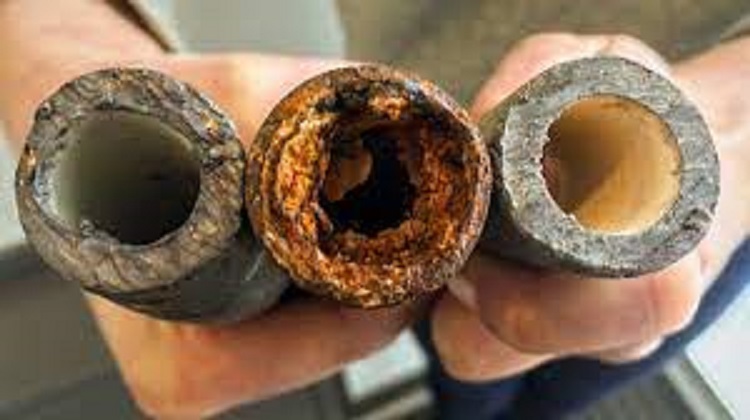
Solve the problem of water hardness for well water
The problem of water hardness affects most of us, causing damage to our equipment and thus making cleaning more difficult. Fortunately, water softeners can help by lowering the mineral level of our drinking water.
What is water hardness?
Hard water is water that has a high mineral content (in contrast to soft water). Hard water is formed when water is filtered through limestone and chalk sediments consisting mainly of calcium and magnesium carbonate.
This water can pose serious problems in industrial use. The water hardness is monitored to avoid costly breakdowns in boilers, cooling towers, and other equipment that handles water. In domestic use, we see hard water when we see no suds forming when soap is agitated in water, and white deposits form in kettles and water heaters. Water softening is commonly used to reduce the harmful effects of water hardness.
Water hardness in well water
Well, water typically contains high levels of iron, heavy metals, and organic chemicals along with nitrates, and may require a specific water filter.
However, well water also contains high concentrations of minerals such as calcium and magnesium that produce water hardness. In order to avoid getting hard water, you will need to apply a water treatment method to get rid of these minerals from the well water supply. This article will tell you about solving the problem of water hardness for treating well water.
Water softening process
Water purifiers use ion exchange to mitigate problems in hard water minerals that allow scale to build up and are harmful to skin and hair. When hard water enters the metal tank, it flows through a layer of spherical resin granules. These plastic granules, usually made of polystyrene, are charged with a sodium ion.
Benefits of using a water softener to treat well water
You can improve the flavor of your drinking water by using a well water softener. The softener system will not only improve the taste of your drinking water but also:
- Enhance the flavor of any ingredient that has been mixed with water.
- Reduce the amount of soap and detergent you use.
- Toilets, bathrooms, showers, clothing, and glassware will prevent scale build-up.
- Avoid scale buildup in pipelines, heating systems, plumbing fixtures, and other water-related appliances.
- This will save you money on maintenance and repairs while extending the life of your household equipment.
Contact one of our Carewater professionals if you need help choosing the right well water filtration system.
Can a water softener remove iron from well water?
Small levels of iron can be removed by water purifiers, and they do. However, a conventional water filtration system is not designed to get rid of water with high levels of iron.
How often does a water softener need to change the resin?
Most analyzes show that the resin loss can be as high as 5% per year, which means that the resin capacity will be reduced by 50% after ten years of use. With this in mind, the best time to replace a water hardness resin is between 12 and 15 years.

























